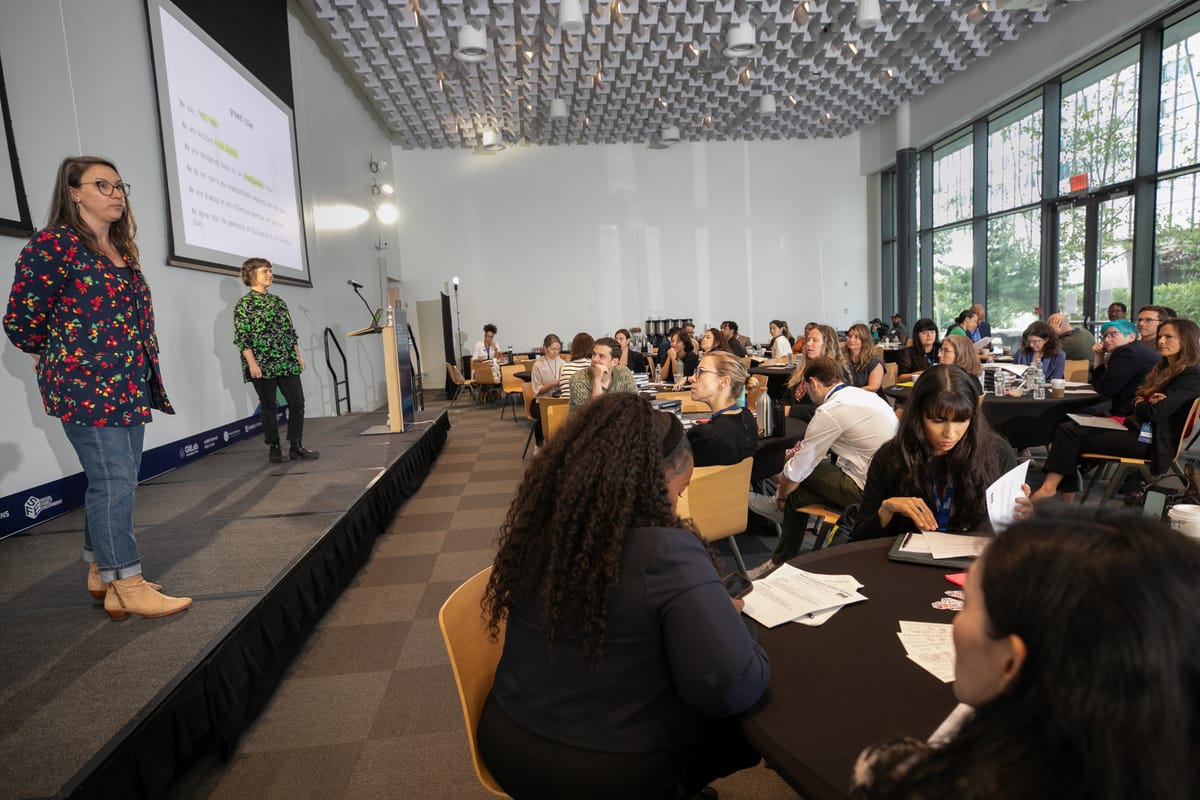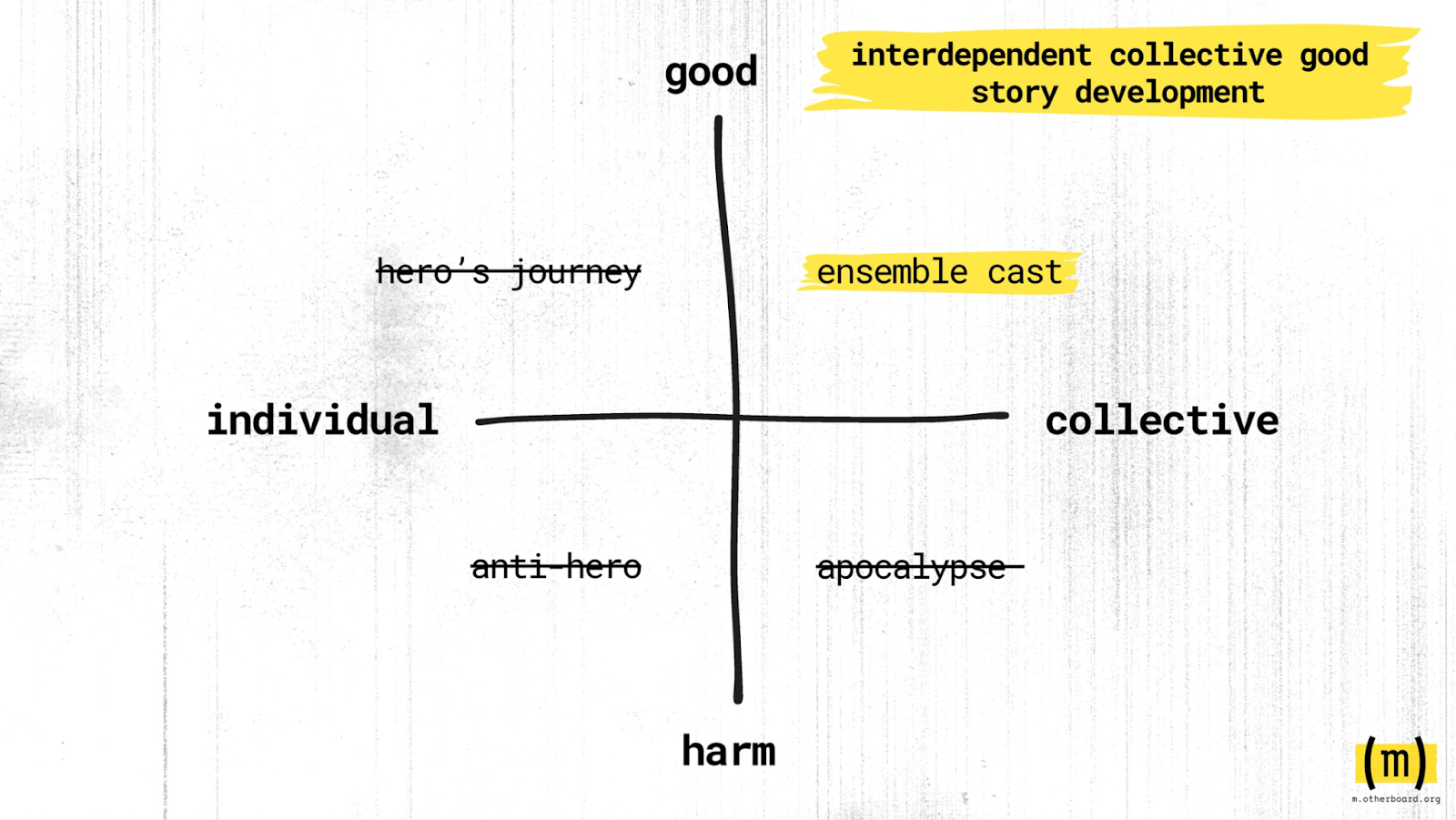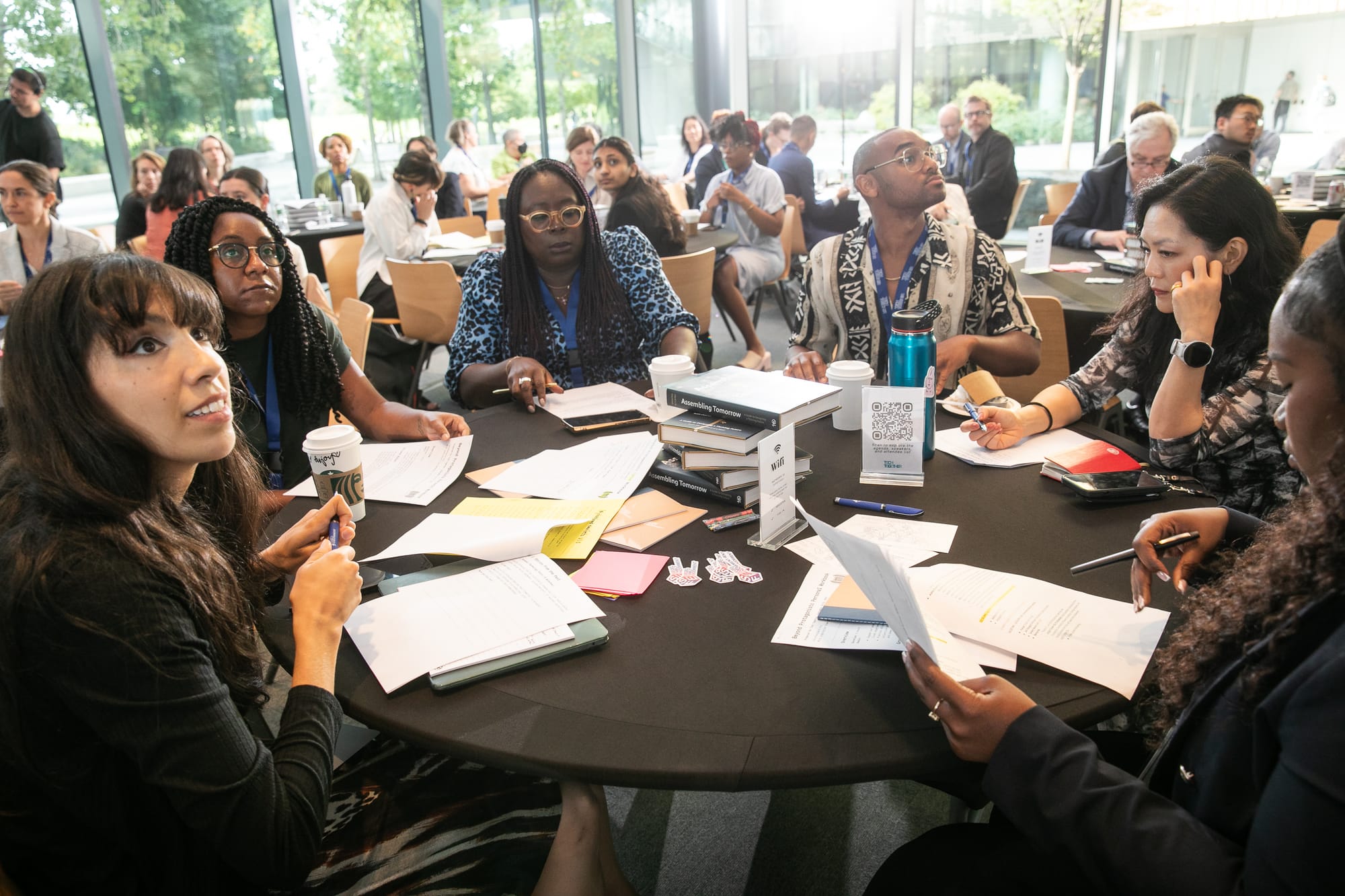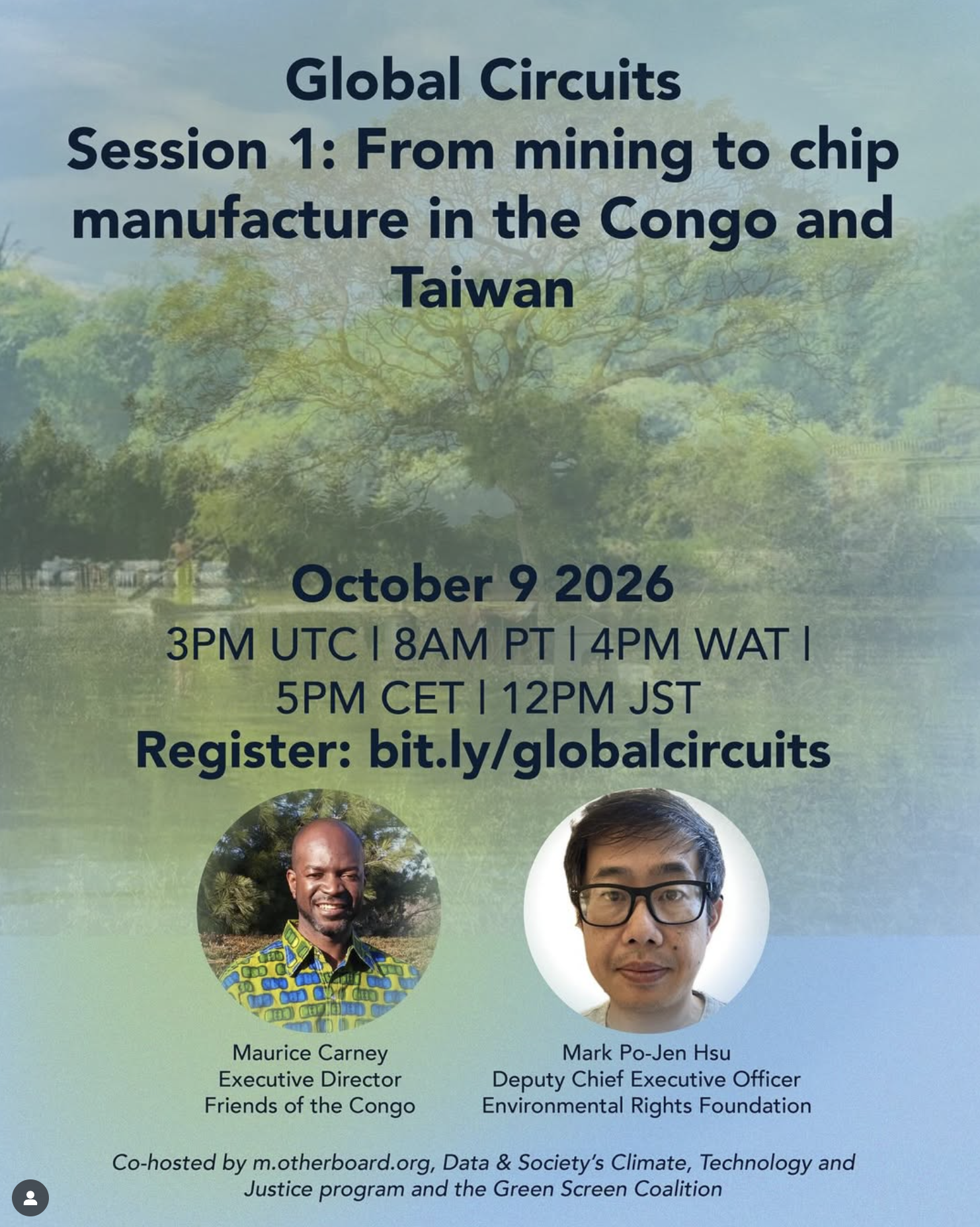Beyond protagonists: imagining stories of collective good

A report from the Tech Together workshop on collective storytelling and interdependent futures
Alongside UNGA and Climate Week in New York, god(m)others Emily and Sara facilitated "Beyond Protagonists: Telling Stories of Collective Good"—a two-hour deep dive into rewriting the narratives that shape technology at Tech Together, put together by the Siegel Family Endowment and the Public Interest Tech Fund partners.
We began by examining the dominant narratives shaping technology—from the "lone genius" and "inevitability" trajectories to the expert-versus-lay-knowledge dynamics that keep so many of us from questioning the systems around us. Together, we unpacked how these narratives show up in our work and lives.
Through personal storytelling, world-building exercises, and creative pitches, we generated visions of 2040 that ranged from accessible education systems rooted in community to global accords prioritizing cooperation over conflict. And we committed resources—networks, imagination, and willingness to open-source ideas—to making these futures possible.
For those who couldn't join us, here's a recap of what the room generated together:
Mapping our narrative landscape
We started with a matrix. On one axis: individual versus collective. On the other: good versus harm.
Most stories we know live in predictable quadrants: the hero's journey (individual good), the anti-hero (individual harm), and apocalypse narratives or war movies (collective harm). But the top right corner—collective good—is hard to populate. We struggled to name popular stories that show people working together toward shared flourishing without centering a protagonist or relying on conflict as the primary driver.

We tried. Sports movies (but there's always a quarterback). Ocean's 11 heist movies (but it's still Ocean's). Don't Look Up (ensemble cast, but driven by apocalyptic threat). We landed on: My Neighbor Totoro, the mRNA vaccine, the moon landing (though even could still be hero-coded, depending on how you tell the story…).
This scarcity of examples isn’t accidental. Western narrative centers protagonists. We’ve done a lot of work changing who gets to tell the story of tech in the past few years, but that’s not quite radical enough. Individuals are still centered, even if they are different individuals than we’ve historically focused on. That’s the narrative gap for truly radical narrative change we wanted to draw our imaginative attention to.
Personal stories
We started with participants sharing personal technology stories—EVs as climate-guilt-free mobility, pirate radio stations as creation rather than consumption, bikes as intergenerational freedom. Then we unpacked the narratives underneath: what myths, what power structures, what economic forces shaped these experiences?
Groups identified dominant tech narratives showing up in their personal histories:
- "Leave tech to the experts—you're not qualified to judge it"
- The wizard/magician keeping technology incomprehensible to maintain control
- Niche digital communities building real belonging but getting de-invested while toxic mainstream platforms continue getting funded
Collective good, collectively imagined
Then came the stretch: imagine 2040. We attempted to tell stories from the collective good quadrant—stories that move beyond individual hero protagonists and center interdependence, collaboration, and pro-social outcomes. No solo heroes. Decenter conflict. Build the world.
Groups imagined futures where children have self-determination, education is modular and place-based, borders dissolve in favor of collaboration, and communities build around connection rather than extraction.
Commitments to collective futures
We had the unique privilege at Tech Together of being in a room full of funders and changemakers. We asked: what resources can you commit to making these futures possible? The room offered:
- Open-sourcing ideas instead of hoarding perfectionist work. "Everything is a remix"—being less precious, more generous with unfinished projects
- Using work as mirrors showing how technology affects everyone collectively, not just as individuals
- Evangelizing collective good frameworks to other program areas, for example, to funders who only talk about AI in tech sessions
- Challenging "useful" versus "users"—applying rigorous assessment to actual impact rather than celebrating MAU metrics
Let’s imagine together
Our workshop materials were designed to be replicable. If you'd like to run this exercise with your team, your board, your community—get in touch! And if you want (m)otherboard to facilitate a narrative workshop with for your team, we're available. Here’s more on our take on the (m)otherboard consulting model.

Global Circuits Sessions
Enormous amounts of computing power in the form of hardware—from data storage to GPUs—are behind the rise of the AI boom. Studies show that generative AI could add 1.2 to 5 million metric tons of e-waste to the planet by 2030. Who are the people and places who power our digital age?
Introducing the first Global Circuits Session: From mining to chip manufacture in the Congo and Taiwan. (m)otherboard is thrilled to be supporting this speaker series.
Join us Thursday October 9 at 8 AM PT/11 AM ET.
Register here: https://bit.ly/globalcircuits
Join us for the first session in the Global Circuits speaker series where we draw connections and forge solidarity from the Congo to Taiwan. Maurice Carney, Executive Director at Friends of the Congo, and Mark Po-Jen Hsu, Deputy Chief Executive Officer from Environmental Rights Foundation Taiwan will share their work supporting grassroots and frontline movements impacted by environmental racism and global tech supply chains.
This series is co-hosted by (m)otherboard, Data & Society’s Climate, Technology and Justice program, and the Green Screen Coalition.

Blockchain Chicken Farm book club
We are also honored to host Xiaowei R. Wang, author of Blockchain Chicken Farm: And Other Stories of Tech in China's Countryside for our next book club. We’ll dig into how technology intersects with rural life, racial capitalism, modes of care, and environmental justice. Xiaowei Wang is an artist, writer, and educator whose practice examines the entanglements of technology, racial capitalism, modes of care, and environmental justice. Their work spans speculative fiction, prose, sculpture, and textiles—including experiments with data storage and transmission through fabric.
October 16 8–9:30 PM EDT live with Xiaowei Wang
October 30 8–9:30 PM EDT (m)otherboard book club members only
Become a (m)otherboard supporting member to join the book club and start reading along with us. We invite you to purchase your book via our (m)otherboard storefront at bookshop.org.
"We live in capitalism, its power seems inescapable—but then so did the divine right of kings. Any human power can be resisted and changed by human beings. Resistance and change often begin in art. Very often in our art, the art of words." — Ursula K. Le Guin
Keep imagining. Keep resisting official futures. Keep building the interdependent future we need.
In solidarity,
– The God(m)others
